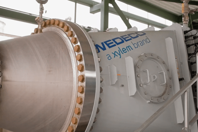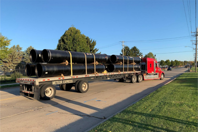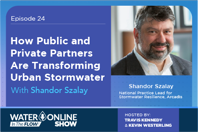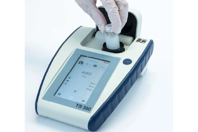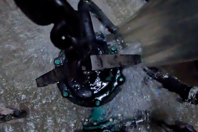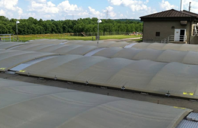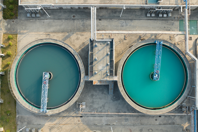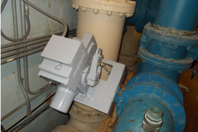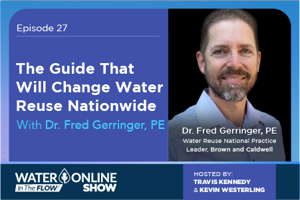WASTEWATER REGULATIONS AND LEGISLATION RESOURCES
-
On this episode of The Water Online Show, hosts Travis Kennedy and Kevin Westerling interview Fred Gerringer, Brown and Caldwell’s Water Reuse National Practice Leader, about the creation of a first-of-its-kind State Water Reuse Regulatory Guide being developed for the WateReuse Association and its partner organizations.
-
Transitioning to advanced purification methods like UV-hypochlorite oxidation allows municipalities to secure reliable, local water supplies. These strategies mitigate drought risks and protect coastal environments by transforming wastewater into a high-quality resource for reuse.
-
U.S. Pipe supplies 34 miles of 30-inch ductile iron pipe for Waukesha’s Lake Michigan water project, delivering reliable, high-pressure infrastructure for generations of residents.
-
The Water Online Show kicks off its new season with an in‑depth discussion on stormwater management, focusing on New York City’s innovative partnership with Arcadis. Guest Shandor Szalay, the National Stormwater Resilience Practice Lead at Arcadis, explains how climate‑driven superstorms and aging urban infrastructure have pushed the city to rethink stormwater strategies.
-
In critical healthcare environments, water sanitation is non-negotiable. When a hospital’s chlorine dosing system began failing, Pulsafeeder’s NextStep pump was selected to restore reliability and ensure patient safety. This case study outlines the challenges faced, the solution implemented, and the broader implications for healthcare facilities nationwide.
-
Accurate low-level turbidity monitoring requires a deep understanding of detection limits and the variables affecting measurement sensitivity. Learn how refined laboratory techniques and standardized spiking protocols ensure precision in demanding water treatment applications.
-
A submersible solids handling pump featuring a semi-open impeller and self-cleaning cutter plate solved a severe clogging issue. Operating without a single clog for over six months, the technology delivered "100% uptime" and freed up staff for other vital maintenance.
-
The South Dearborn Regional Sewer District in Lawrenceburg, Indiana, provides regional wastewater treatment services for three cities and an international distillery. The 6 mgd treatment plant is located in an area of high population growth and is surrounded by many retail operations and other commercial developments. In addition, a heavily traveled state highway runs by the treatment plant.
-
Read about three of the most pressing wastewater challenges utilities face today and how Stratmoor Hills, Key West Resort Utilities, and Beijing Water Group are using advanced treatment and reuse to overcome them.
-
A water filtration treatment plant was built in 1950, pneumatic actuators were installed on all of the filter control valves. The pneumatic actuators were not always reliable. Air compressor problems limited the availability of the pneumatics to control the filter valves.


